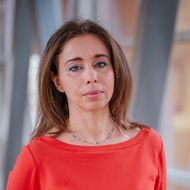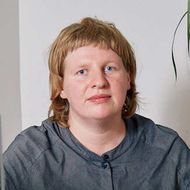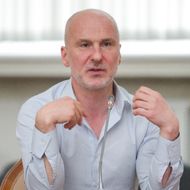Communications, Creativity and Critical Thinking — What Have the Students Learnt in the Course of the Skills4Future Programme
November 18 a metaprogramme Skills4Future came to a close at HSE University - St Petersburg. During a month participants were working on problematic tasks and projects devoted to the involvement of the youth in the life of the city, developing the concept of the festival for the Russian Museum of Ethnography, studying the cultural scenes of Saint Petersburg and the influence of coronavirus on the society. Let’s see what results the students managed to achieve.

About the programme
The meta programme “Skills4Future” is aimed at the development of a wide range of soft skills, such as communication, team work, creative and critical thinking. Within the frames of the programme, during one month students work in intellectual labs, where they foster soft skills and apply them to the solution of practical and research tasks.
In 2020 the meta programme was implemented in Russian and English in an online format. More than 140 2nd and 3rd year Bachelor’s students of HSE University — St Petersburg took part in the programme. All of them were involved in research and project activities of one of four intellectual labs:
— 'The Hipster City is Born. Cultural Production of St. Petersburg in the 2000s' supervised by Margarita Kuleva, Associate Professor, Department of Sociology
— 'Social Anthropology' supervised by Prof. Nikolai Ssorin-Chaikov, PhD, Associate Professor, Department of History
— 'Creative Industries' supervised by Dr. Julia Trabskaya, Associate Professor, Department of Management
— 'Youth in the City' supervised Prof. Elena Omelchenko, Associate Professor, Department of Sociology
In all four labs, the participants were actively interacting with academic supervisors and tutors and developing projects aimed at increasing the availability of the urban environment, raising the popularity of museums and the reinterpretation of the cultural productions of St Petersburg and the experience the society obtained during the pandemics.
Apart from the work in intellectual labs, students participated in other programme events. Natasha Kersh, Professor of the Institute of Education, University College London, delivered a lecture devoted to the development of competencies and skills. Participants of the meta programme also took part in the master classes by Giedre Vasiliauskaite, Professor of Rotterdam Business School, and Elena Kudryavtseva, Associate Professor of the Department of Management, which were devoted to the development of soft skills: communication, team work, creative and critical thinking.
About student projects
Teams of the intellectual labs presented their final projects on November 18 to all the participants, academic supervisors and experts in the frames of the closing session of the programme.
The team of 'Creative Industries' lab presented the project developed in collaboration with the Russian Museum of Ethnography. Students worked on the concept of a museum festival 'Feel' which includes five different tracks corresponding to five feelings. For instance, National Tastes Festival, Hear the Culture and Ethno Beauty. The festival incorporates different activities — art exhibitions, concerts and charity actions. All of them are targeted at different audiences, and are aimed at increasing the museum’s awareness and attracting new collabs.

Julia Trabskaya, Supervisor of the Laboratory
For me, it was a pleasure to take part in Skills4Future Project. Our work in the intellectual lab was very productive: students interacted with the experts of the Russian Museum of Ethnography, representatives of creative industries; they obtained basic event management skills and took part in master classes.
The team of the lab was composed of very talented students, who presented really bright festival concepts. Yulia Kupina, Director of the Russian Museum of Ethnography, attended the project presentation. She gave very detailed comments on our work and expressed the willingness to implement the events suggested by the students, and introduce new trends in the development of the museum.
I would like to thank the event organizers, my colleagues and tutors of the team — Alexey Gorgadze, Irina Sizaova, Irina Borovskaya, Yana Shokola and Alicia Adriani.
The second lab 'Youth in the city' presented a number of practice-oriented projects aimed at overcoming urban inequality. Their main aim is to increase the accessibility of the city’s locations and events for different groups of citizens.
Participants presented the concept of a mobile app Yandex co-work, developed in collaboration with Yandex. The app in the form of an interactive map will help students, freelancers and other people in need of a workspace outside their home or office to find a comfortable coworking. The aggregating platform Y&Y for youth initiatives will help people to unite for the development of new projects and be involved in the life of the city. The project for the digitalization of St Petersburg clubs and bars called Vocatus’a will help the citizens to take part in bar and club events safety during pandemics.
Besides, the team of the lab presented the projects of an interactive map with street art sites and objects aimed at helping people with disabilities to learn more about the city culture. Students created the concept of an app with the lists of places to visit grouped by categories - restaurants, cafes, coworkings and exhibitions.
The lab supervised by Margarita Kuleva was carrying out research work. Participants studied the cultural production of St Petersburg in the 2000s and analyzed the process of the formation of hipster subculture. Within the project, students were studying the transformation of fashion and style, the formation of cultural recreations, new city geographies and various cultural life events. In their work, they employed both quality and quantities research instruments, e.g. in-depth interviews and surveys.

Margarita Kuleva, Supervisor of the Laboratory
Over these weeks we compiled a data archive of the studies, talked to twenty people, relevant for the case, and studied the subject using different instruments. I’d like to thank all tutors and students for this enormous work and express my gratitude to the programme organizers for the opportunity to carry out such a unique research work. I hope that we’ll continue our work on studying the recent history of St Petersburg.
The fourth lab 'Social Anthropology' focused on studying the methodologies. Its participants learnt which soft skills should be fostered to study the social consequences of the pandemics, and on which subjects they need to focus to understand how the pandemics changed the city and the society. During their work, they studied the practices of distance learning and online content consumption, the changes in the perception of the virus by the citizens and their attitude to safety during the pandemics.

Nikolay Ssorin-Chaikov, Supervisor of the Laboratory
First of all, I’d like to congratulate students! The projects they presented are a great achievement. Students developed them under new conditions of the pandemics. Over the short period of time they managed to carry out quality research and present comprehensive solutions of the cases.
Thanks to the presentations we can see that they successfully mastered all soft skills announced - from creativity to critical thinking. Besides, the participants were actively involved in communication processes. They communicated not only within their team, but as well with project customers and informators. This key interaction skill will be useful for further studies.

